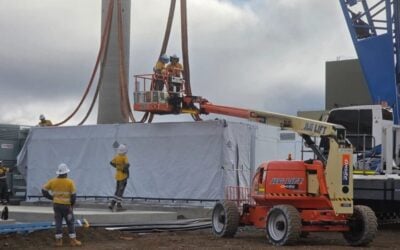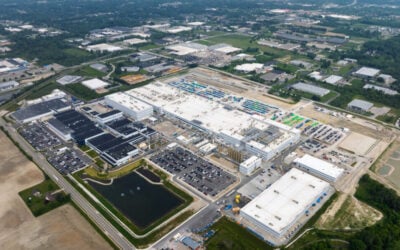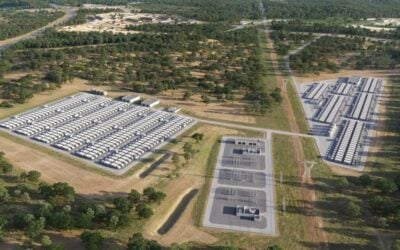Circuit board of a battery module management system for lithium-ion batteries, designed for high-voltage operation. The circuit measures the battery cell voltages, equalises the cells and determines the state of charge of the batteries. Image: Fraunhofer ISE.
Certification for safety and other technical standards must become uniform in the market for residential energy storage systems which can combine with PV systems, according to an expert at technological research institute Fraunhofer ISE.
Stephan Lux, who is head of Fraunhofer’s battery module and system team, spoke to PV Tech at the Intersolar Europe show in Munich, Germany.
Enjoy 12 months of exclusive analysis
- Regular insight and analysis of the industry’s biggest developments
- In-depth interviews with the industry’s leading figures
- Annual digital subscription to the PV Tech Power journal
- Discounts on Solar Media’s portfolio of events, in-person and virtual
Lux voiced concern that in the nascent energy storage system industry, which is currently shared by a mixture of a large number of start-ups seeking to attract funding as well as established companies from solar or other industries such as consumer electronics, the lack of technical standards could prove seriously problematic.
“There are a lot of new companies coming out of the market with storage technologies, there are big players like Sony or Samsung or Bosch coming from a strong technical background – but there are also new companies which can start off very small and it’s a very complicated technology,” Lux said.
Lux referred to recent work by the researchers at Karlsruhe Institute of Technology (KIT) in Germany, revealing apparent safety flaws in li-on home storage systems. The KIT team said current testing and certification standards were inadequate.
His concerns were by no means limited to the process of developing, manufacturing and selling battery systems from the standpoint of the companies involved. According to Lux it is also problematic that consumers are not given the means to make an informed choice about which battery systems to install at home.
“We need at least technical standards; it has to be checked with some authority that the storage systems comply with the technical standards. It’s always a question to which standards systems must comply. It’s not very clear, not for the end user and not for the producer.”
Lux said however that in theory this process of placing certified standards on the industry could be readily achieved.
“There are already a lot of institutions out there who could do a certification, like the German TUV, or other companies internationally. We are not certified for testing, but there should be some rules for the end user so that he has some knowledge, maybe like a safety seal or something.”






